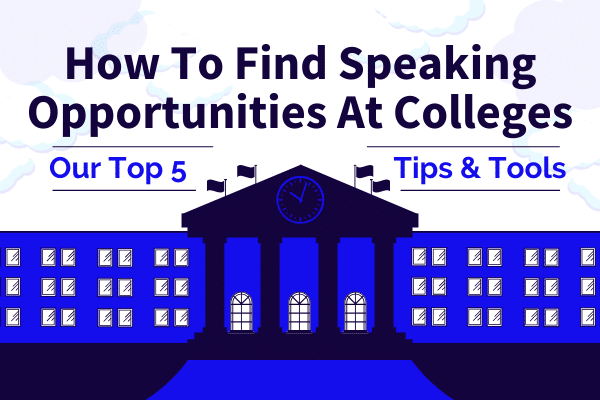When you consider the speaking industry, there are four primary areas that speakers can target for speaking opportunities. These include commercial teams, non-profit organizations, and governmental institutions. It also includes educational settings, such as presentations for university faculty or lectures for college students. In recent years, this option has become increasingly popular for professional speakers not only because of the ever-growing number of young people entering higher education. It’s also an opportunity to share your message with a young audience that will make good use of your strategy for years to come (and is likely looking for guidance and opportunity in an already stressful period of their lives). That’s why, in this guide, we’re going to cover how to find speaking opportunities at colleges and universities.
Although there are countless sources out there for speaking gigs in education, five that stand out. Here, we’ll break down those five tools, including one built specifically for speaking professionals, the Intel Engine. But, enough talking (or reading, I guess?). Let’s get into it! 👍
Associations for Educators
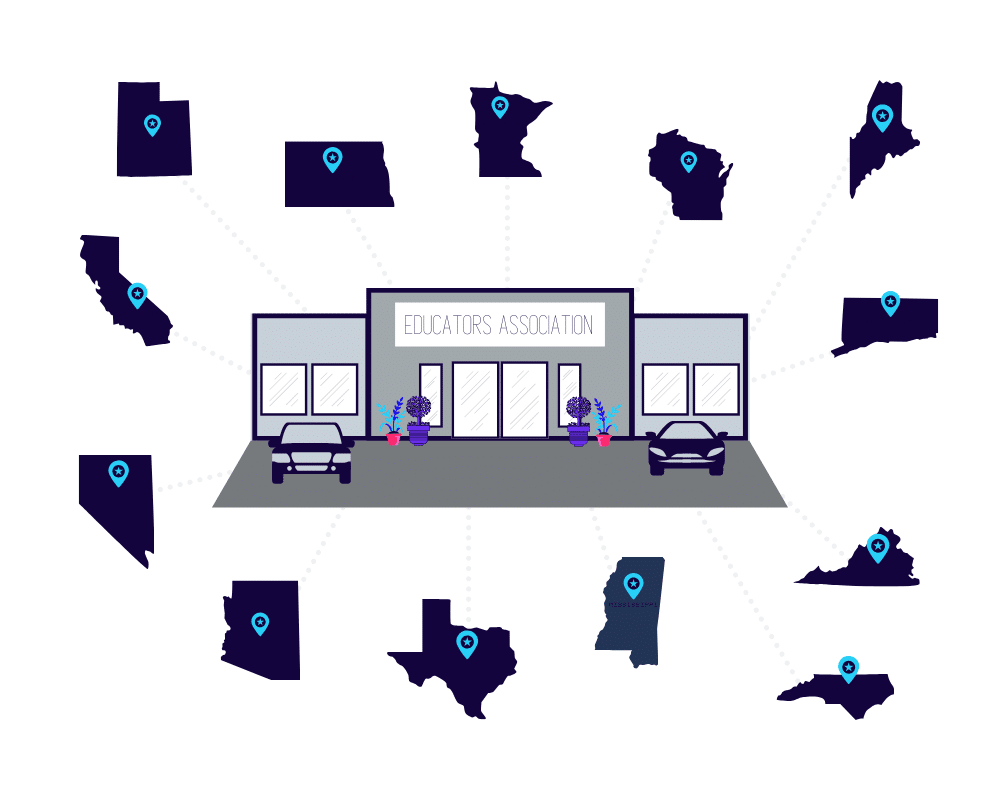
First in our list of tools for how to find speaking opportunities at colleges is educators’ associations. As mentioned previously, although many universities and colleges are focused on hosting events for their students, they’re just like any other business. In other words, besides their customers (i.e. the students), they also support an internal team that needs motivation, leadership, and inspiration to keep the machine running smoothly. For many of these individuals, these morale boosts come from collaborating with other educators. That’s where these associations for educators come in.
That said, although collaboration with other educators is a stellar source of creativity, every group can benefit from an outside opinion or perspective. Additionally, because the college and university system mimics business, in many ways, it can be helpful for educational associations to collaborate with business-minded professionals in addition to experts in student learning. That’s where you come in! From a transactional perspective, not only are you an asset, as an expert in your field. You’re also a professional, when it comes to moving a crowd, making you more capable of encouraging your audience and inspiring them to action.
Within the United States, a few of the largest associations for educators include the College and University Professional Association for Human Resources (CUPA-HR), the National Association of Independent Colleges and Universities (NAICU), and the Association of American Colleges and Universities (AACU). Additionally, keep an eye out for local opportunities that allow you to speak for educators on a smaller scale. Personally, I’m in Minnesota, so if I were a speaker, I would reach out to the National Education Association’s Minnesota chapter. Similarly, in your own state or area, don’t forget that although large organizations are definitely worth contacting, there’s value in local institutions, too.
College & University Databases
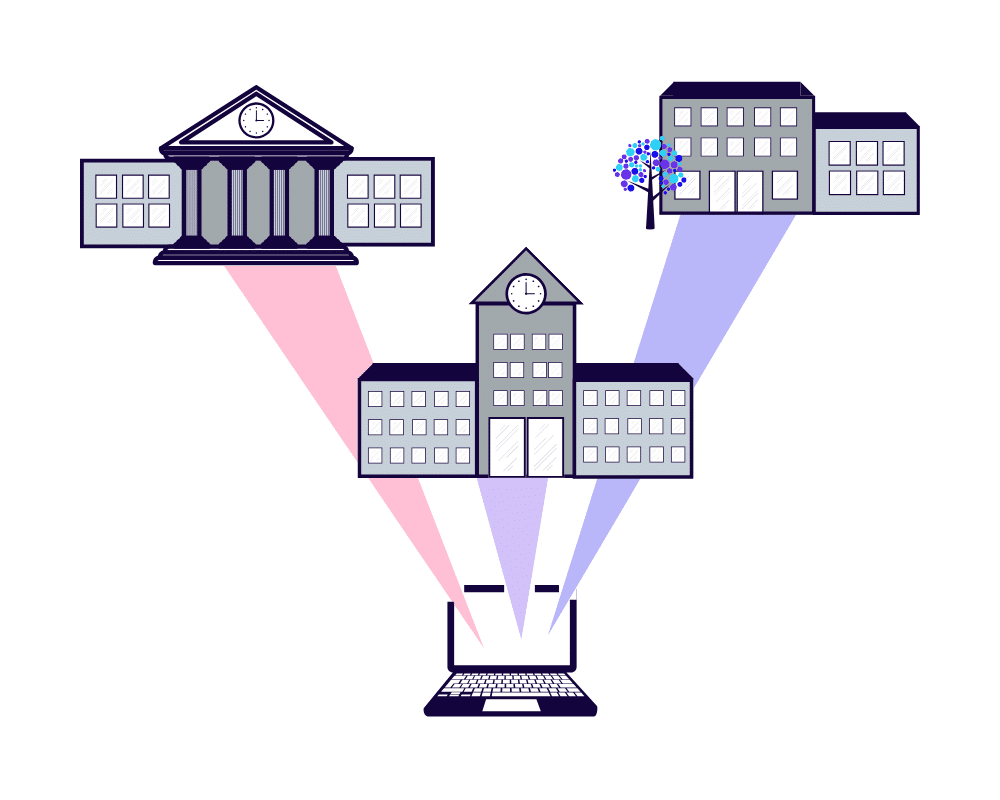
Next on the list for how to find speaking opportunities at colleges is college and university databases. These collections, often available online, contain lists of educational institutions around the United States or, in some cases, around the world. From a sales standpoint, these collections can be useful for two reasons. The first is the speed with which you can find high-quality leads. The second is the ease with which you can find local institutions. That way, you can pitch your services to several colleges in the same area and schedule them to take place around the same time, saving time for you and travel costs for your clients.
Additionally, many databases are focused on a specific topic. Religion, for example, is a prominent focus of many universities across the country, besides academic renown. In light of this, if you’re a spiritual or religious speaker or if you incorporate religious messages into your presentations, these databases are especially useful.
To begin searching for leads in college and university databases, keep this in mind, so that you can prioritize, based on your focus. Ask yourself, “Do I want to focus on small colleges or large universities?” and “Is my message ideal for a religious audience or not?” From there, choose a single database to start with, and work your way through their list before jumping to the next list of institutions. A few solid starting points include the “List of Colleges & Universities in the U.S.” from CollegeStats.org, the “Top Christian Colleges Guide” from TopChristianColleges.org, the college and university info center at 50States.com, and the “A-Z List of Universities in the United States” from UniRank.com. We’ll talk more later about how to take these lists and find contact information for each college.
Student Groups & Sororities/Fraternities
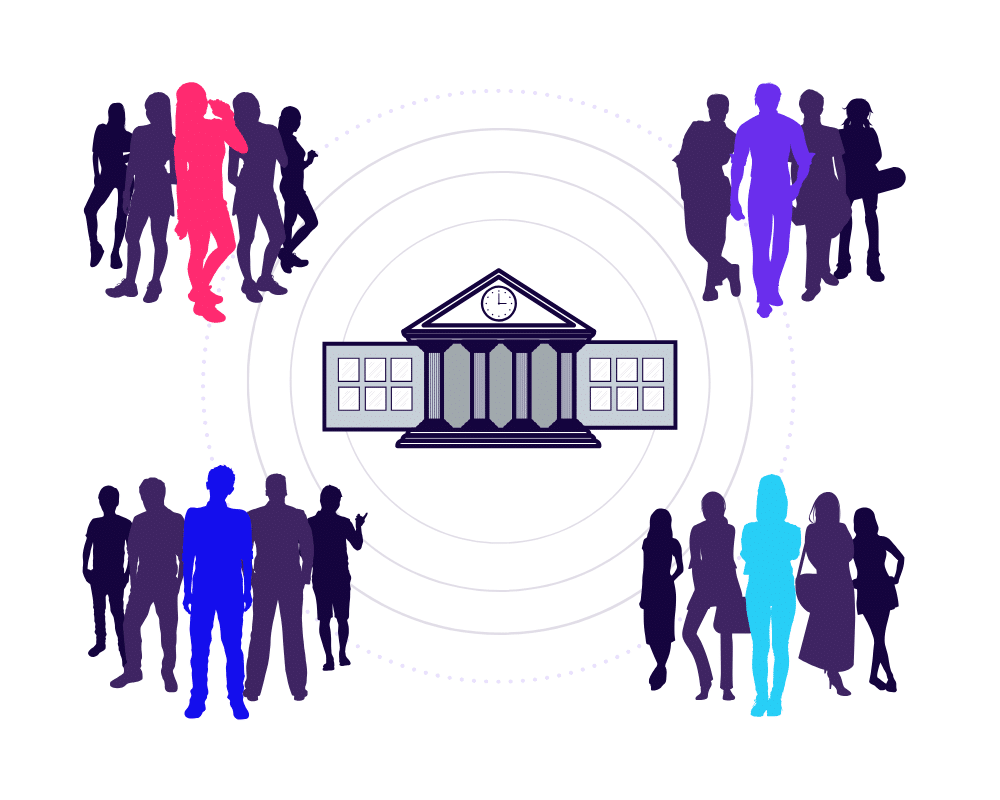
The fourth source for how to find speaking opportunities at colleges is the big one: the students. Depending on the college or university in question, the number of students can range from a few hundred to tens of thousands. Personally, as a student at the University of Minnesota, I walked the campus with roughly 80,000 people every day. As a student, that was a bit of a traffic jam. However, as a speaker, that’s a golden number of opportunities for you to make a difference, with a large group of students or a small one.
In general, three of the easiest ways to appeal to students, as they plan group events, are by focusing on student groups, sororities, and fraternities. As with finding leads in a corporate setting, the most important thing to remember is your audience. As of right now, take an inventory of what you speak about, and place it in an educational setting. What group of students can benefit the most from your experience and insights? Randy Haveson, for example, is a self esteem and substance abuse speaker as well as a life coach. Because of this and his own experience with recovery from substance abuse, his main audience is sororities, and fraternities, many of which have long promoted a culture that enables substance abuse.
In the same way, consider your own message and how young people could benefit from it. From there, craft a presentation specific for college-age students, and start contacting local or national groups with how amazing it is. If you’re unsure where to start, check out GreekRank.com’s lists of sororities and fraternities and start with groups that have chapters at your local colleges or universities. To start on a larger scale, check out the North American Interfraternity Conference.
Alumni Associations

Besides the students and faculty that are currently active at colleges and universities, there’s one additional group that can benefit from an educational speaking presentation: alumni associations. In the United States, millions of college graduates – recent and long past – belong to alumni associations as a way to support their alma mater after graduation. Additionally, involvement in an alumni association allows for stellar networking opportunities among members. This is especially meaningful for you, as a potential event speaker for these groups. After all, networking among group members also means a greater chance that they mention your work. More mentions means repeat speaking opportunities or referrals to other alumni associations.
Furthermore, alumni associations are, in many cases, very active with the current student body at their respective organization. This means, should they enjoy your first presentation, not only is there a chance they’ll hire you again themselves. They can also turn into referral sources for student presentations. Win, win!
Nationally, in the US, there are countless associations for college and university alumni. However, there are ten whose members have been cited for decades as the most active and the most influential. Below is the full list, so you can start researching and reaching out to them. Again, we’ll talk more shortly about how to find contact information specific to each organization. 👍
- Stanford University Alumni
- Harvard University Alumni
- Amherst College Alumni
- Brown University Alumni (Brunonia)
- Dartmouth College Alumni
- Rice University Alumni
- Duke University Alumni
- Smith College Alumni
- Columbia University – New York Alumni
- Princeton University Alumni
Speaker Intel Engine
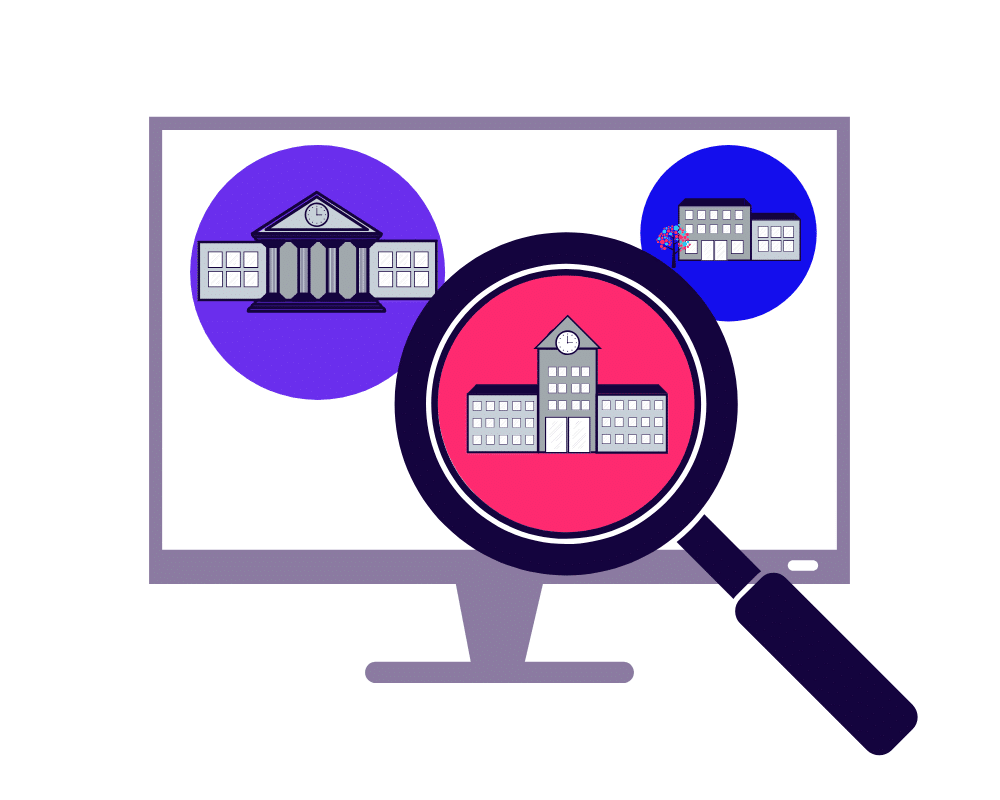
Finally, we’ve covered four sources of leads, when learning how to find speaking opportunities at colleges and universities. Now, let’s talk about how to find specific contact information for those leads. Within the speaking industry, the most efficient tool for professional speakers is the Speaker Intel Engine. Launched in 2019 by speaker and salesman, Sam Richter, the Intel Engine acts as a Google search engine overlay. Ultimately, this means that not only can it access 90% more information than a traditional Google search. You’re also able to use it to quickly and efficiently find people and their contact information.
I could talk for a long time about the Intel Engine and the ways it speeds up the lead-finding process. That said, why tell you when I could show you? 🙂 For a quick overview of the Intel Engine, Sam’s intro video is a solid starting point.
It’s also important to remember that any lead generation tool is only worth what you make of it. In other words, when you find high-quality leads, it’s vital that you organize them in a customer relationship manager (CRM). That way, you can efficiently turn them into clients and start building relationships. Learn more about getting started with a CRM here.
Hopefully, this gave you some practical advice for how to find speaking opportunities at colleges. For more information about speaking in an educational setting, check out our companion blogs, “How Do I Become A Public Speaker At Colleges & Universities?” and “How Do I Become A Public Speaker In Schools?”. 👌


